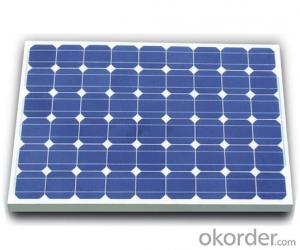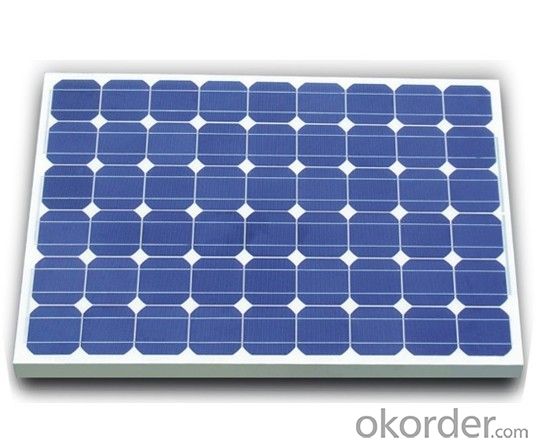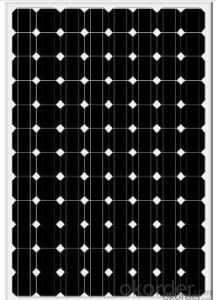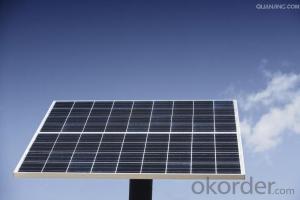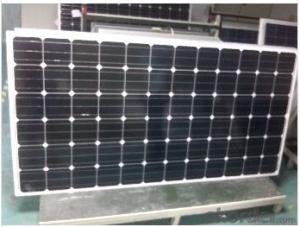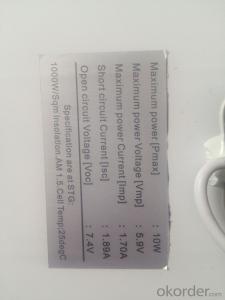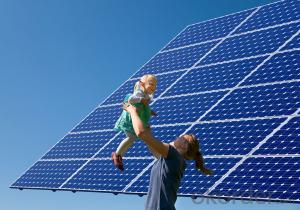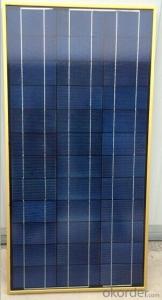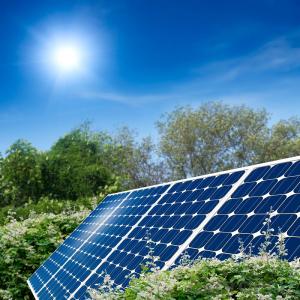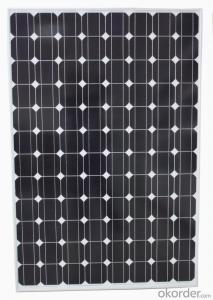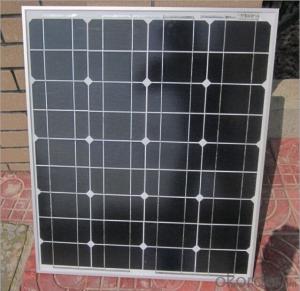60W Monocrystalline Silicon Solar Module - Supplier for Solar Panels
- Loading Port:
- Shanghai
- Payment Terms:
- TT OR LC
- Min Order Qty:
- 10000 watt
- Supply Capability:
- 1000000 watt/month
OKorder Service Pledge
OKorder Financial Service
You Might Also Like
Specification
Product Description
Monocrystalline Silicon Solar Module 60W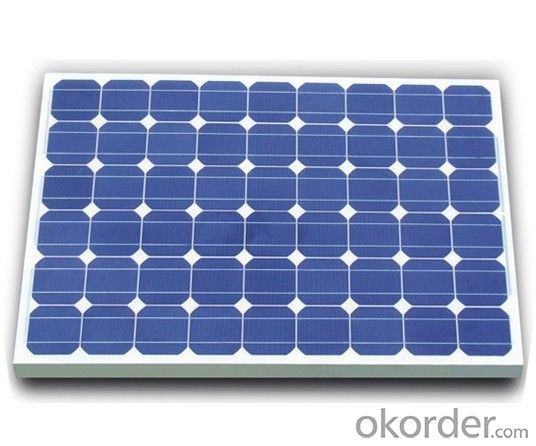
Solar Cell : High efficiency crystalline solar cell. Even if under the weak light, the solar module can produce maximum power output.
Tempered glass (toughened glass): Anti-reflecting coating and high transmission rate glass increase the power output and mechanical strength of solar module.
EVA and TPT: Using high quality EVA and TPT to prevent destroying and water.
Specifications for Mono-crystalline Silicon Solar Module with 60W Maximum Power
| Mechanical Characteristics | |
| Cell type | mono-crystalline silicon solar cells |
| Cell layout | 4*18 |
| Number of cells | 72pcs |
| Module dimensions | 899*537*35mm |
| Frame | anodized aluminum,grey or black |
| Junction box | IP65 |
| Connectors | MC4 or MC4 compatible(optional) |
| Net weight | 5.80kg |
| Packing | 7pcs/ctn |
| Electrical Characteristics | |
| Peak power(Pmax) | 60W |
| Power tolerance | ±3% |
| Max.system voltage | 715VDC |
| Open circuit voltage(Voc) | 21.5V |
| Short circuit current(Isc) | 3.82A |
| Max.power voltage(Vmp) | 17.5V |
| Max.power current(Imp) | 3.43A |
| Temperature coefficients of Isc | 0.035%/ºC |
| Temperature coefficients of Voc | -0.33%/ºC |
| Temperature coefficients of Pmax | -0.43%/ºC |
| Cell Efficiency | ≥17% |
| FF | 73% |
| Standard Test Condition(STD) | Irradiance:1000W/m²;Cell temperature:25ºC;AM:1.5 |
Features:
1) High reliability with guaranteed +/-3% output power tolerance
2) The modules can withstand high wind-pressure, snow loads and extreme temperatures
3) Bypass diodes to minimize power loss with shading
4) High and stable conversion efficiency to ensure the highest quality
Quality and Safety
1) Industry leading power output warranty, 25 year 80%, 10 year 90% power warranty and 3 year power warranty
2) ISO9001: 2008 (Quality Management system) certified factory
3) Product Quality warranty & products Liability Insurance to guarantee and user' benefits
EN 6100-6-3: 2007 EN 6100-3-1: 2007(IEC 61000-4-2: 2008
Our advantages:
High quality materials: High insulation TPT, Anti-aging EVA
Focus on each process during manufacture
Experienced engineers and workers
Fast delivery: 7-15 DAYS High efficiency and long time warranty
- Q: Can solar panels be installed on camping sites?
- Yes, solar panels can be installed on camping sites. They provide a sustainable and renewable source of energy, allowing campers to power their equipment and devices while minimizing their environmental impact.
- Q: what is needed beside the panels and do you need an electrician to hook it up
- A decent installation needs a solar engineer to make sure the panels are aligned to take advantage of all the solar it can get. that or You need to hit the books on solar radiation. online I would try different programs to get the feel. we get less solar radiating in the winter then in the summer. this needs to correctly compensated.
- Q: Can solar panels be used in areas with high levels of chemical pollutants?
- Yes, solar panels can be used in areas with high levels of chemical pollutants. While it is true that pollutants can potentially affect the efficiency and performance of solar panels, proper maintenance and cleaning can mitigate these effects. Additionally, advancements in solar panel technology have made them more resilient to environmental factors, including chemical pollutants.
- Q: Can solar panels be installed on a fire station or emergency services building?
- Yes, solar panels can be installed on fire stations or emergency services buildings. In fact, many fire stations and emergency services buildings have already adopted solar energy to reduce their carbon footprint and save on energy costs. The ample roof space available on these buildings makes them ideal candidates for solar panel installation. Additionally, the use of solar power can provide backup power during emergencies, ensuring uninterrupted services even during power outages.
- Q: Can solar panels be installed on a gas station or convenience store?
- Yes, solar panels can be installed on a gas station or convenience store. In fact, many gas stations and convenience stores have already embraced solar energy as a way to reduce their carbon footprint and lower energy costs. By installing solar panels, these establishments can generate renewable electricity and potentially even sell excess power back to the grid.
- Q: Can solar panels be used in areas with high levels of bird droppings?
- Yes, solar panels can be used in areas with high levels of bird droppings. However, regular cleaning and maintenance may be required to ensure optimal performance of the panels.
- Q: Can solar panels be installed on a small scale?
- Yes, solar panels can be installed on a small scale. In fact, they are highly adaptable and can be installed on rooftops, balconies, or even small plots of land. This makes them a convenient and cost-effective solution for individuals or small businesses looking to generate their own renewable energy.
- Q: If this was sold back to the grids what would be the profit i would stand to make per day on energy received in these panels? How did you come up with this answer?
- I'm putting in a $00,000 solar wind project on ST Thomas, Virgin Islands so I have some experience here..... ) depends on where you are...the further north the less efficient the panels are because early morning and late afternoon sun hitting at a great angle isn't anywhere near as good as noon hitting perpendicular..........the US Department of Energy has a solar calculator showing how many hours a day over the year you get enough sunlight to actually run the panels....in the Caribbean the answer is 6 so in Wisconsin you might only get 4 really usable hours a day, Nevada 5, Seattle...forget about it..... 2) the panels I'm putting in are ( roughly) 2 x 3 feet...you would need access around all four sides of a panel...you are NOT going to crawl 35 feet across an array to fix a unit in the middle......so lets say you get 35 panels tall ( 70/2) by 2 wide (3 foot with a 3 foot access area between each row = 72/6) or 420 panels. Each puts out 75 watts at max. So you are cranking out 73,500 watt hours, or 73kW. If your local utility buys back ( net metering ) the juice at, say, 20 cents a kWh, you get $4.75 an hour. If you have 4 usable hours a day x 365 x $4.74 you get back something like $20,000 a year. You pay about $7.00 a watt for a panel. The 75 watt panels are, rounding up, $200. each. Times the 420 panels number is $475,000 dollars. Add in about $2,000 for the inverter to change panel volts to power company volts, and maybe another $20,000 for installation you are looking at $500,000 AT LEAST to put in the system you propose. AT $20,000 a year in sales, its 20-25 years payback. Now, you can play with these numbers up and down but you still get the answer of A LOT of money to buy and build and a LONG time till payback.
- Q: Can solar panels be installed on a data storage facility or server farm?
- Yes, solar panels can be installed on a data storage facility or server farm. Solar panels can be a sustainable and cost-effective solution to power these facilities, as they can generate electricity from sunlight and reduce reliance on traditional power sources. Additionally, the large surface areas often found on roofs or open spaces of these facilities can provide ample space for solar panel installation.
- Q: Can solar panels be used in remote areas with no access to the grid?
- Yes, solar panels can be used in remote areas with no access to the grid. Since solar panels generate electricity from sunlight, they can provide a reliable and sustainable source of power in off-grid locations. By harnessing the energy of the sun, solar panels can charge batteries or directly power electrical devices, making them an ideal solution for remote areas without access to the traditional power grid.
Send your message to us
60W Monocrystalline Silicon Solar Module - Supplier for Solar Panels
- Loading Port:
- Shanghai
- Payment Terms:
- TT OR LC
- Min Order Qty:
- 10000 watt
- Supply Capability:
- 1000000 watt/month
OKorder Service Pledge
OKorder Financial Service
Similar products
Hot products
Hot Searches
Related keywords
